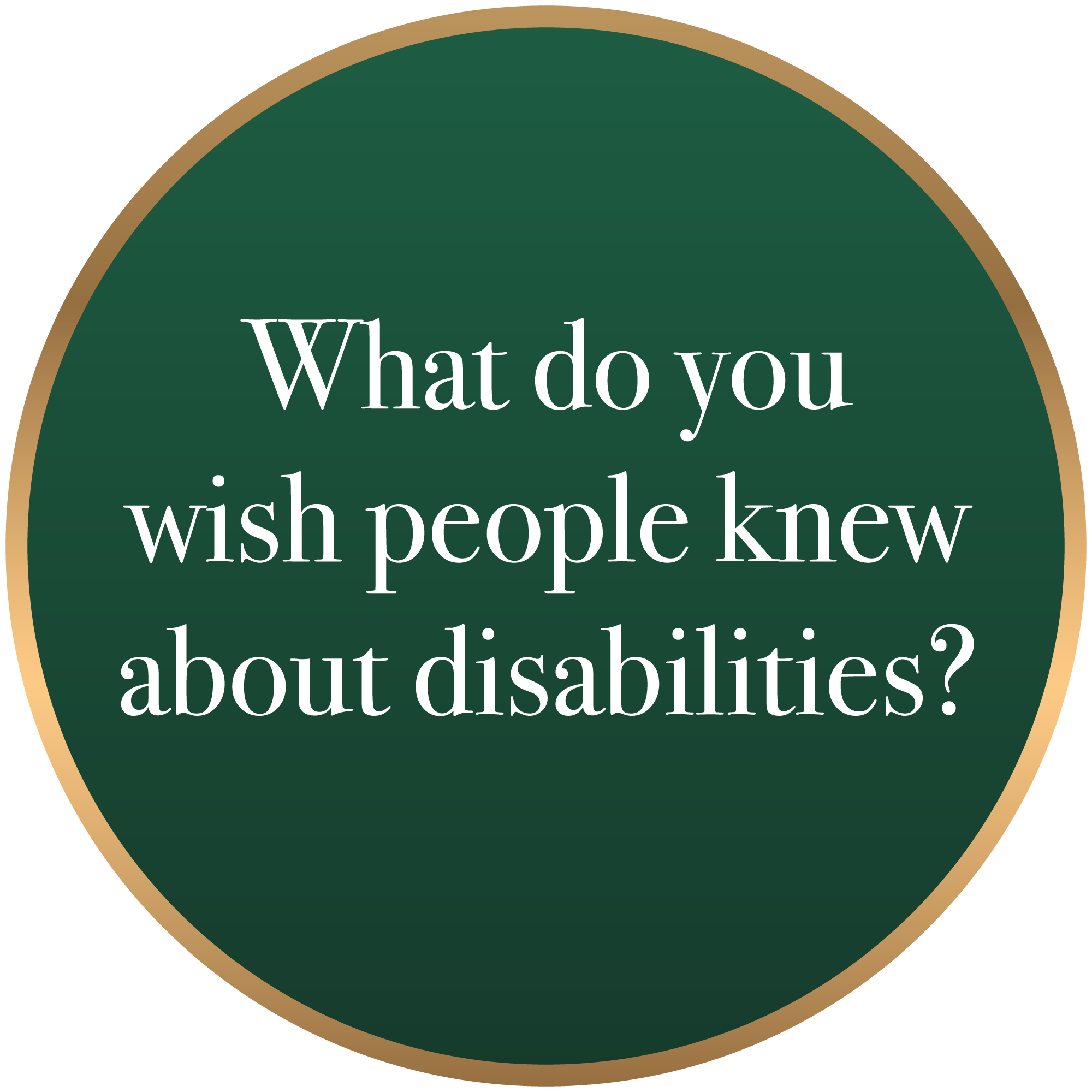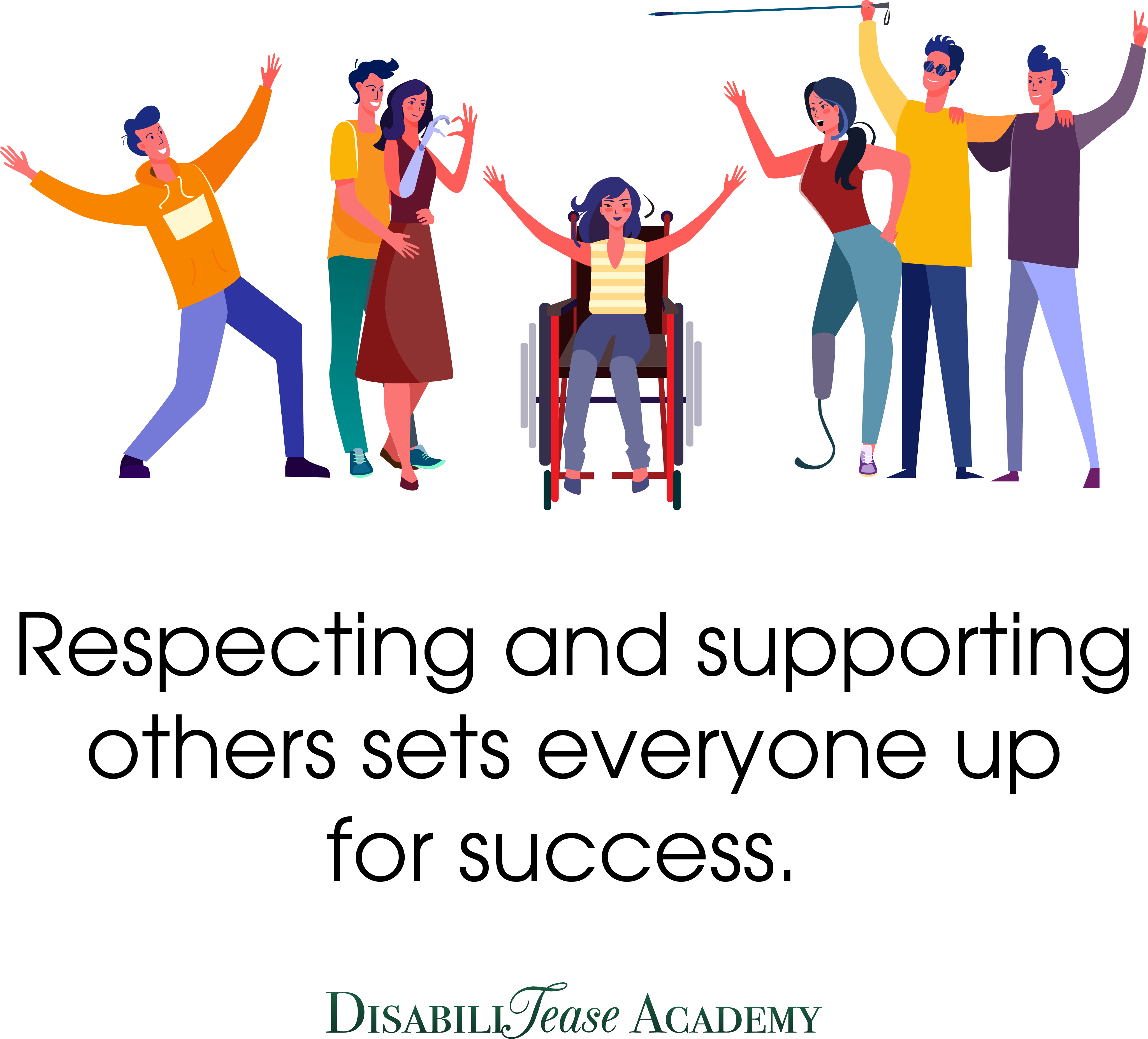The effects of disabilities are as diverse as the people with them.
Disabilities vary widely from person to person and can be visible or invisible. They can be due to physical, developmental, behavioral or emotional, or sensory impairment. Disabilities can also be dynamic or affect one person completely differently than another
Earlier in the month, we asked folks what they wish people knew about their disabilities. While there were a large variety of answers, a few common ideas resounded among our followers.
“We may never know someone’s whole story, and we don’t always have the right to know about it either. Finding ways to support folks in everyday life, regardless of if we know about a disability or not, sets everyone up for success.”
Long story, short- don’t assume! While this doesn’t just apply to disabilities, it is important to remember that we can’t know everyone’s whole history and therefore we can’t know what they are able to do, or how hard they have to work to complete a task. Showing patience and kindness to everyone- diagnosis or not- creates an inclusive environment around you.
“I’m not being disabled at you. Or at myself. It’s a thing my body does at any time for any reason…”
Nobody gets to choose when their disability flares up and, (Fun Fact!) almost all kinds of disabilities will flare up under situations of stress. Meaning if you’re stressed, chances are your friend is also stressed AND handling their disability. Reminding yourself how frustrating it would be if you were in their position can help you show kindness even when you’re feeling overwhelmed or disappointed. You are not alone in those feelings.
“[Disabilities] are not always visible, so just treat everyone with respect ❤️“
Invisible disabilities exist! This doesn’t just apply to mental disabilities. Some folks have physical disabilities that aren’t visible. It is important to remember when you feel like someone “doesn’t need” assistance or an aid for completing a task. Just because you saw someone walk into the store and then use an electric cart, doesn’t mean they don’t need the cart. A short walk from the parking lot is quite different from walking and standing while shopping. Don’t assume you know what another person needs.

Some other responses to our post include:
- Not everyone can afford to be diagnosed in a country without socialized health insurance.
- …my brain being disabled doesn’t mean I’m less aware or less intelligent. I’m aware of everything that’s going on around me; I just sometimes can’t make my body react to it.
- Ambulatory wheelchair users exist. We can stand up (*gasp!*) sometimes!
- I wish more people knew Auti$m $peak$ is a hate group.
- Food allergies and other reactions can count as a disability and there’s a broad spectrum of different kinds.
Overall, the resounding message was to respect everyone, show kindness, and remember that you can’t know someone else’s story. If we all take this advice, we can create a more inclusive society very quickly.
Suggested reading:
- 5 Things Everyone Should Know About People With Disabilities (Forbes)
- Disability Etiquette: Treat Everyone with Respect [PDF] (New York State Department of Health)
- List of books (non-fiction and fiction) about disabilities (Pima County Public Library)
- Myths and Facts About People with Disabilities (Easterseals)
- The biggest barrier for people with disability is how society disables them (EPIC Employment Inc)

Read last month’s post which answers the question “What’s stopping you from taking virtual classes?”

